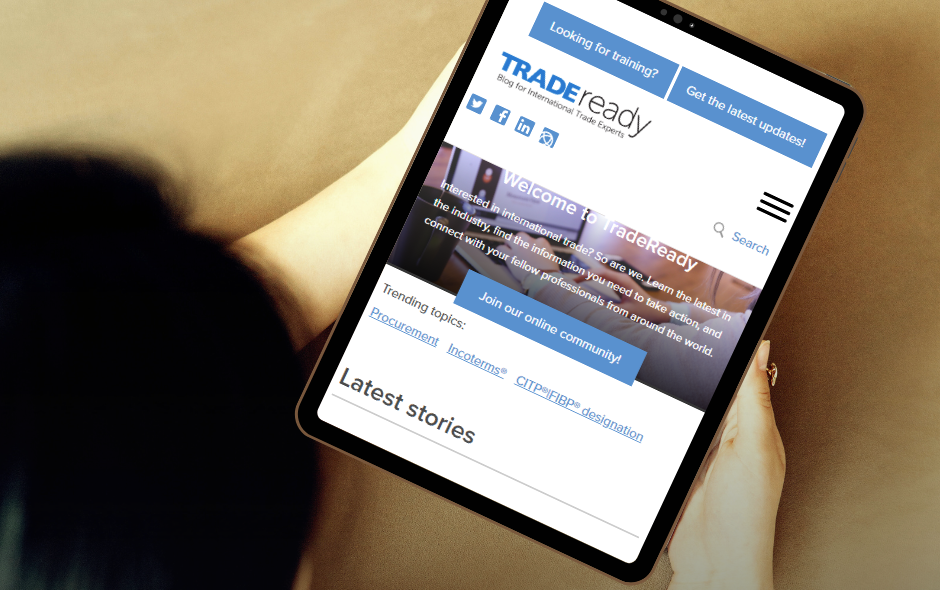 For over a decade, the BRICS countries—including Brazil, Russia, India, China and South Africa—have been noted as emerging markets that are actively growing their international trade activity.
For over a decade, the BRICS countries—including Brazil, Russia, India, China and South Africa—have been noted as emerging markets that are actively growing their international trade activity.
This economic development has done more for these countries than just build their global networks and increase their GDPs per capita. Since 2005, each of their populations has also seen a rise in general well-being, according to the Economist Intelligence Unit’s yearly quality-of-life index. Most dramatically, in just eight years South Africa has moved from being 92nd on the list to coming in at 53rd in 2013.
The Trade Facilitation Office of Canada (TFO) is well aware of the benefits export-growth can create. After all, its mandate is to help companies in developing countries access the Canadian marketplace as well as Canada’s global trade expertise. Through the sharing of information, advice and connections, TFO has helped increase employment and reduce poverty in developing nations around the world for more than 30 years.
“It’s pretty well known that this system has worked in countries like China, South Korea and Chile,” says Brian Mitchell, CITP, executive director at TFO Canada.
Our efforts focus on other developing countries that maybe haven’t been so successful just yet, and we help them benefit from this system.

While Canada isn’t the biggest market on a global scale, it’s a really good market for exporters who are trying to grow into Western markets.
“It’s wealthy and very open to imports, and often times Canada offers nice order-sizes to these companies,” says Brian. “One of the problems exporters run into when they try to start selling to the U.S. is that they just can’t produce the volume that a typical U.S. buyer will want. With Canada being smaller, the volumes tend to be smaller.”
TFO works with exporters throughout Asia, Africa and the Americas, and they tend to focus on a list of priority countries that could use their assistance more than others.
The first step for an exporter to get connected with TFO is to register their company on the TFO website. All they have to do is create a profile and then prove at least a year’s worth of trade experience—be it international or domestic—for TFO to start pushing their products to Canadian companies in the appropriate sector.
Exporters from more than 100 developing nations access this contact service, as well as more than 1,400 importers across Canada.
Our work is all about helping companies in developing countries market themselves and their products to Canadian buyers,” says Brian. “It’s about information and match-making.
TFO also runs training programs and seminars to teach companies in developing nations about exporting. They often work closely with local trade offices and export agencies in these regions to establish curriculum and resources that can continue to serve a training purpose long past the end-date of specific programs and projects.
Finally, TFO also works with trade shows and arranges trade missions on a regular basis, helping them to create lasting connections between developing exporters and Canadian buyers.

Brian has been working at TFO Canada for nearly a decade, and he says that during that time there have been so many amazing projects and rewarding experiences. One project that has particularly stuck with him was called Design Africa. It was an initiative that fell out of several other projects, and the goal was to create an international entryway for small manufacturers of handcrafted goods from across the continent.
“We ended up working with about 8 different countries and helped a lot of exporters make connections with buyers in Canada,” he says.
The South African government saw a lot of potential with this project, and funded it to grow into Europe and the U.S., in addition to Canada.
It was exciting to see what started as a small, one-time Canadian-market initiative, expand into a large multi-market multi-sector initiative.
TFO’s involvement in this particular project eventually came to an end, but because of their original efforts, a lasting impact from this initiative continues to this day!
“The website we created for the project—www.DesignAfrica.ca—is still heavily used,” says Brian. “Even though the project has essentially been dormant for five years, we still see so many requests from buyers.”
And this is the nature of TFO’s work. They provide exporters in developing countries with the knowledge and the tools they need to start building international trade capacity all on their own.
Brian says he wishes sometimes they had the chance to do a bit more follow-up with the exporters just to see how far they’ve come and to see the benefits of TFO’s work. But moving forward and creating opportunities for new companies is the main focus.
They do however look to retain longer-term relationships with the trade support communities within developing countries.
“These are the really important long-term partners because they’re helping their exporters day-to-day,” says Brian. “We become their support partner for how to export to Canada.”







disqus comments